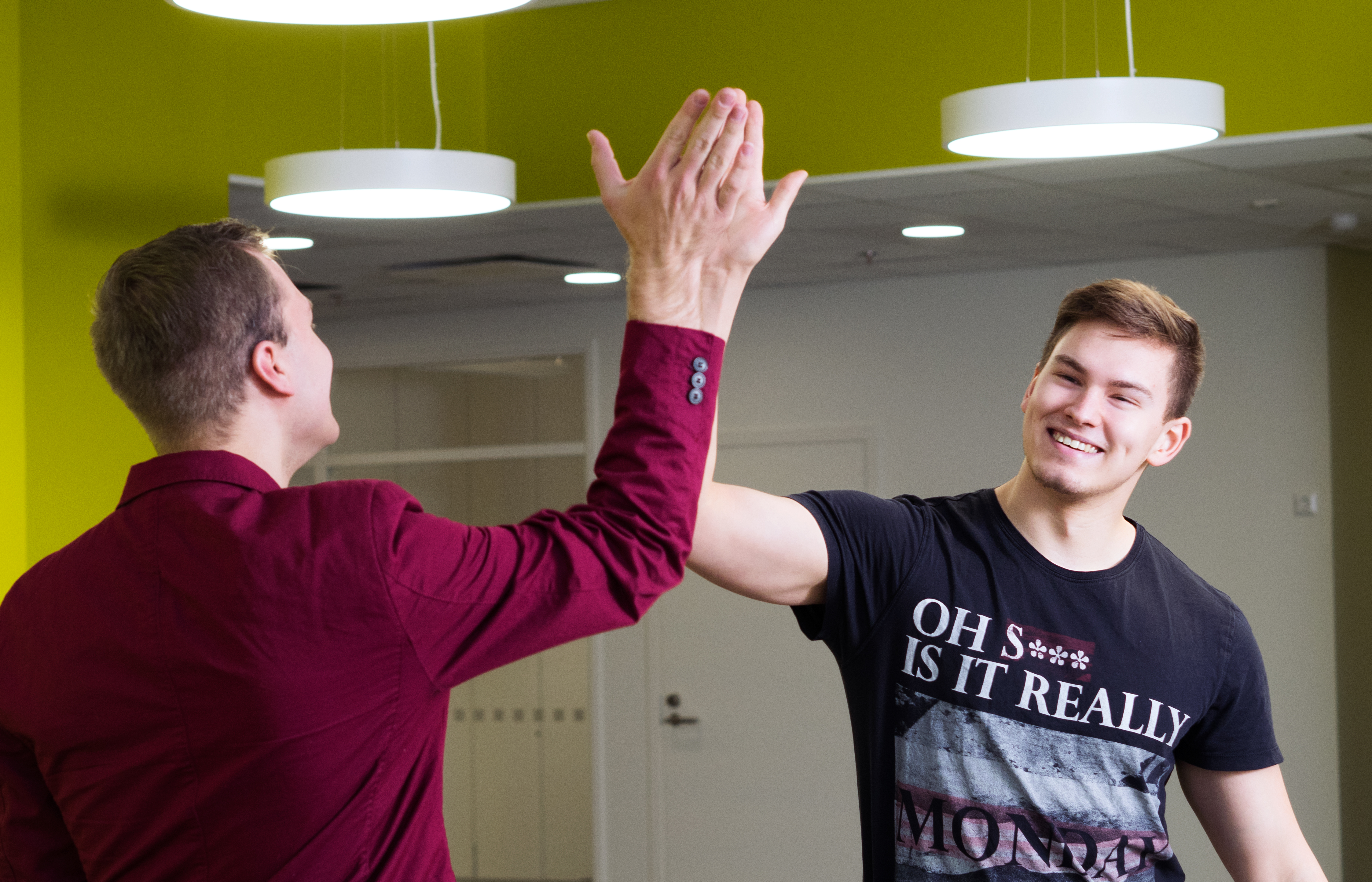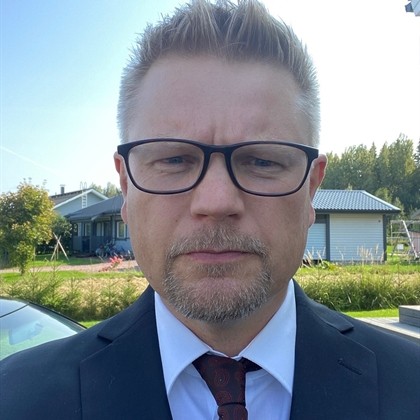


All SAMK students, regardless of their degree programme, are offered help with writing and writing a thesis. The help includes, for example, thesis workshops, info sessions, writing meetings and question and answer sessions. You can make use of this in your studies even before you start writing your thesis. You can find thesis workshops and bookable individual times on the Oiva intranet.
You can also take part in the club activities organised by The Student Union SAMMAKKO.
SAMK’s thesis guidelines have been written specifically for the needs of students working on a thesis. Is it recommended to use the guidelines also for other written assignments. For guidance and tips, see the guidelines for written assignments and thesis website
You can contact a special needs teacher if you have received support in your previous studies or if you feel that you need it, if you are accumulating grades, if you are finding it difficult to start tasks or if you are getting a lot of failing grades. If you suspect you have a learning difficulty, or if you have a history of learning difficulties and need individualised arrangements for your studies, read Accessibility and arrangements for individual support.
During the academic year, you may be able to participate in group support workshops (requires logging in to Oiva) led by a special needs teacher.

Learning disabilities are common, with 10–20% of the population having some form of learning difficulty. Learning difficulties can manifest themselves in reading, writing, mathematics, foreign language learning, use of digital tools, motor skills, perception and concentration. Early identification of learning difficulties and access to support at all stages of studies is important. Different ways of learning and learning support tools help people to cope with learning, work and everyday life.
The most common specific learning difficulties are reading and writing difficulties. Reading difficulties can manifest themselves in many ways, such as slow reading or difficulties in written expression.
Reading tests at SAMK in Finnish are carried out by Pia Lahdenmaa (pia.lahdenmaa@samk.fi). Special needs teacher can take tests in English about your reading difficulties.
For more information on reading difficulties, see the Oppimisvaikeus.fi website and the website of the Association of Dissimilar Learners (Eoliitto.fi). Available only in Finnish.
If you have difficulties with maths and arithmetic, you may find it hard to remember counting rules, understand long number sequences, graphs or geometry. Numbers may be missing or out of place. You may also find it difficult to understand quantities or directions. Perceptual difficulties are very often accompanied by difficulties in mathematics. For more information on mathematical difficulties, see the Oppimisvaikeus.fi website and the website of the Association of Distinctive Learners (Eoliitto.fi). Available only in Finnish.
Perceptual difficulties can include difficulty judging relationships or directions, difficulty judging distances or speeds, difficulty seeing parts as a whole, difficulty identifying and finding objects, difficulty seeing and distinguishing details, or difficulties with visual thinking or remembering.
In practice, you may find it difficult to read maps, find and learn routes, or understand how equipment works. You may also find it difficult to understand construction plans, diagrams or geometry. Similarly, you may have problems with things like time. People with perceptual difficulties may also have difficulty understanding time sequences, cause and effect relationships and structuring things.
Much of human interaction is non-verbal, and perceptual difficulties can sometimes interfere with the interpretation of non-verbal communication. For more information on perceptual difficulties, see the Oppimisvaikeus.fi website and the Association of Distinctive Learners website (Eoliitto.fi). Available only in Finnish.
Autism spectrum disorders occur in about 1% of the population. Autism is caused by differences in brain development. Autism manifests itself in the way a person senses and experiences the world around them and communicates and interacts with others. The impact of autism spectrum disorders on learning is highly individualised. For more information, visit the Autism Society website (Autismiliitto.fi). Available only in Finnish.
Many mental health problems temporarily affect a person’s ability to process information and learn. They also impair functioning in different ways and can therefore make learning more difficult. For more information on this topic, visit the Oppimisvaikeus.fi website. Available only in Finnish.
The same principles apply in higher education as in secondary education to the means of facilitating learning. However, the information provided in higher education is more specific than in lower education, and lectures can become very fast-paced with names and expressions that are difficult to distinguish. It is therefore easier for both the student and the interpreter if the lecture material can be consulted in advance or at least the subject matter is known. For more information on this topic, visit the Kuuloavain.fi website.
Special study arrangements for you because of your visual impairment may include extra time in exams, exam questions in capital letters, braille or electronic form, access to lecture materials in manuscript or electronic form, and possible substitutions. For more information, see the website of the Association of Visually Impaired People (NKL.fi).
You can also request exam books and other study materials in accessible formats, for example from Celia.
You may have access to mobility and learning aids, a personal assistant or an assistance dog. You are the expert in your situation. An open discussion between student and teacher will help you to find effective teaching and learning practices. It is also worth contacting your special needs teacher.
You can study drug calculations on the Dose website.
Login information for SAMK students is in the Oiva intranet.
Time management tools at Nyyti ry website.
The books and resources of the Celia Accessibility Library are available to all people who find it difficult or impossible to read, for example because of a reading disability, disability or illness. If you feel that you would benefit from audio books, please contact your campus library for instructions on how to apply for an access code.
The SAMK Library offers a range of online resources such as books, journals, articles, databases, theses and course materials. The accessibility of these resources varies.
Word Read Aloud function
This function allows you to listen to Word texts. Click on the top menu to Review à Read Aloud.
Word Immersive Reader function
The Immersive Reader provides easy-to-use features that reduce visual clutter, highlight and spell text, and read aloud. From the top menu, click View à Immersive Reader.
Word Editor function
The Editor checks spelling and grammatical errors and suggests corrections. Click on the top menu Home à Editor.
Browser-based functions
Read Aloud add-on that allows you to listen aloud with Google Chrome.
Immersive Reader
An unofficial Chrome add-on for the Microsoft-approved Immersive Reader. Allows you to make the text in your browser easier to read and to listen to the text aloud. Similar functionality to Word.
The Celianet website provides more examples and tips on various listening and reading tools.
You are entitled to individual support arrangements if you have been diagnosed with an illness, disability or other obstacle to progress in your studies.
Please have a counselling interview with your teacher tutor (or student counsellor) and complete form OP16B for individual support for your studies and send the application form as an email attachment to the special needs teacher, erityisopettaja@samk.fi .
Once the special needs teacher has received your application, he will invite you to a guidance interview. At the guidance interview, you will present the special needs teacher with an expert opinion on the learning disability that affects you.
The decision on the arrangements for individual support for your studies will be made by the head of teaching of your degree programme on the basis of a proposal from the special needs teacher. Once the head of teaching has made the decision, the special needs teacher will send it to you by e-mail.
Once you have received the decision, you present the decision on the individual support arrangements to the teacher at the latest at the start of the course and agree with the teacher on the individual support arrangements.
Accessibility in learning means providing a physical, psychological and social learning environment that ensures equal access for all students. At SAMK we are committed to providing an equal and accessible higher education environment for every student. Special attention is paid to barriers to learning and special arrangements are made to support students in need of special support.
For students with special needs, a calm and (sensory) accessible campus environment where they can reset their own stress levels is important. Since people with special needs may be stressed by visual surroundings and a lot of colour, the calmness brought by earthy tones is important in the campus environment.
Not all of us recover in the same way – for example, by constantly being in the company of others. That’s why we want to offer students alternative ways to recover.
Relaamo has been built on the SAMK Campus Pori, next to the “glass cubes” on the 3rd floor of the A section. It is a retreat corner created in the Diginepsy project to support recovery. The Relaamo is built according to the principles of sensory-friendly design. It is hoped that Relaamo will inspire students to reflect on the kind of retreat they need in addition to their study days. The Relaamo has a range of relaxation exercises for you to try out. There are also crosswords, sudoku puzzles and adult colouring books to help you relax in the Relaamo.
All campuses at SAMK have facilities for self-study, where you can also study outside teaching hours.
SAMK students can book a group study room at the Pori Campus Library.